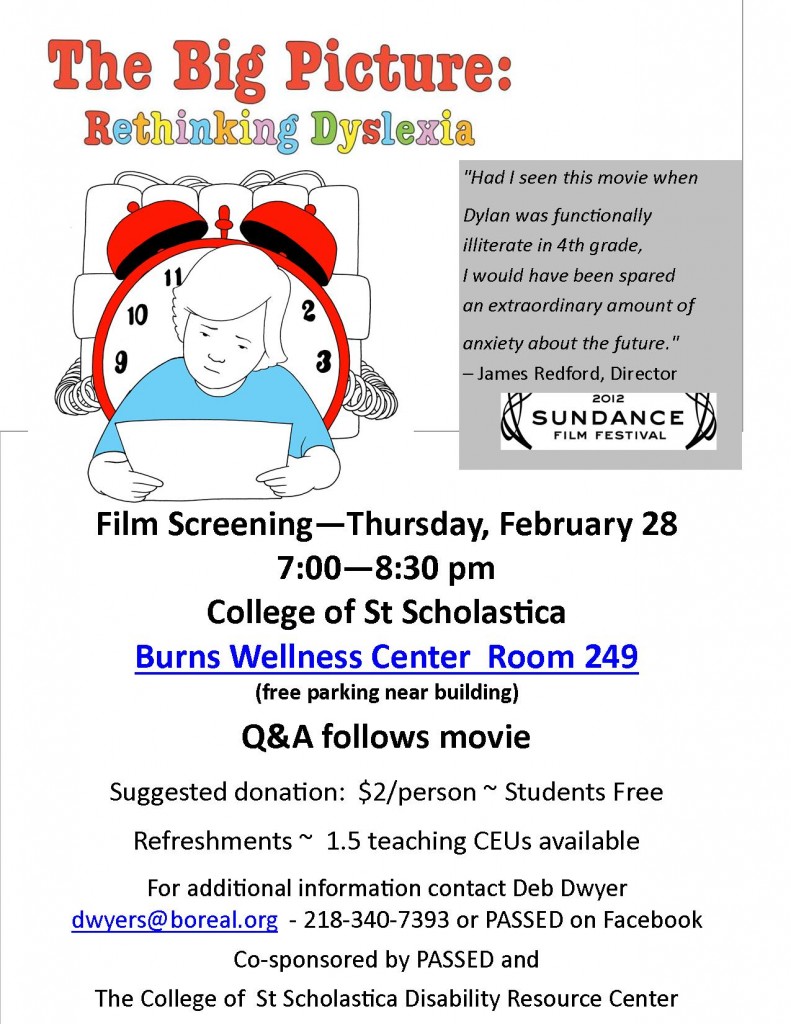
“Reading, Writing and Research-based Interventions”
Friday, April 19, 2013
University of St. Thomas, St. Paul campus
Featured Keynote Speaker:

Dr. Suzanne Carreker
Neuhaus Education Center
- Download Brochure
- Conference Details
- Track Information
- Speaker Bios
- CEU/College Credit Information
- Registration Information/Fees
- Scholarship Information
- Exhibitor Information
- Accommodation Details
- Cancellation/Refund Policy
- Driving Directions & Maps
- Parking
- Contact Us
8 – 9 a.m.
Registration begins/Continental breakfast
O’Shaughnessy Education Center, Auditorium Lobby
9 a.m.
Conference Keynote
Comprehensive Literacy Instruction: The Necessary Pieces for Critical Reading
Dr. Suzanne Carreker
10:15 a.m. — 5 p.m.
Tracks Begin
(includes lunch/annual meeting, afternoon break)
Choose One of Five (5) All-day Tracks:
Track 1: Reading Comprehension
Dr. Suzanne Carreker
Track 2: After the Diagnosis: Getting Children the Help They Need
Legal Rights and Procedures for School Supports
Amy Goetz & Toni Haraldsen, School Law Center
Deciphering the Tests & Writing an Effective IEP
Ray Boyd & Zachary Eakman, Groves Academy
Reading Instruction That Works
Jeanie Munsterman
Track 3: Writing Matters: Developing Sentence Skills in Students Who Struggle
William Van Cleave
Recommended track materials: Writing Matters: Developing Sentence Skills in Students of All Ages by William Van Cleave and concept cards. Special conference price: $50/package. CLICK HERE to request yours.
Track 4: Unraveling Dyslexia for Those New to the Diagnosis
Jean Osman, Amy Basnyat, Fay Van Vliet, Cindy Russell, The Reading Center/Dyslexia Institute of Minnesota
Track 5: Assistive Technology for Reading, Writing and Note-taking
Simon Technology Center Staff, PACER Center
Registration fees:
IDA Members $100
Nonmembers $150
Students $50
CLICK HERE TO REGISTER
Scholarships:
Scholarships are available to all attendees. IDA-UMB provides scholarships to anyone interested in attending the conference, based on need. The June Stern Family Foundation also provides scholarships for attendees to our conferences who are K-3 educators and meet certain qualifications.
CLICK HERE TO DOWNLOAD IDA-UMB SCHOLARSHIP APPLICATION
CLICK HERE TO GO TO JSFF SCHOLARSHIP SITE
For more information, phone 612.486.4242 or email [email protected].
Sponsored in part by The June Stern Family Foundation


 If a school is using an RTI approach, what rights do parents have and what strategies can be used to address identification issues?
If a school is using an RTI approach, what rights do parents have and what strategies can be used to address identification issues? 